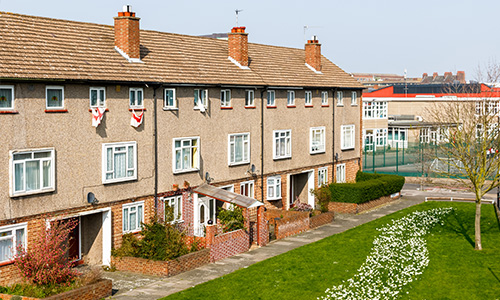Listening to tenants: The key to successful social housing retrofit
Last month our strategic partner the Northern Housing Consortium (NHC) hosted its annual summit, a jam-packed two-day online event that brought together 160 people from councils, housing associations and providers from across the north of England.
The key theme was climate change and the need to upgrade our homes to meet net zero targets.
One highlight of the summit was the unveiling of the recommendations from the Social Housing Tenants’ Climate Jury.
Earlier in 2021 the NHC commissioned the first Social Housing Tenants’ Climate Jury in partnership with five housing associations: First Choice Homes Oldham, Karbon Homes, Salix Homes, Thirteen Group and Yorkshire Housing.
With the process designed and facilitated by the social enterprise Shared Future, the Jury of 30 social housing tenants came together over a period of 10 weeks in the summer to discuss, “how can tenants, social housing providers and others work together to tackle climate change in our homes and neighbourhoods?”
The process resulted in a set of recommendations, which fell into four broad categories:
- Recommendations on retrofit technology
- Recommendations on costs and managing disruptions to tenants
- Education, raising awareness, communications and Housing Association collaboration
- Tacking climate change in our neighbourhoods
Key themes that run throughout the recommendations are those of trust and confidence, communication and collaboration. Tenants simply want to be treated with respect when changes will be made to their homes.
In addition, there is strong sense that ‘we are all in this together’ and now is the time for sharing information, transparency and trust. It is just as important to share mistakes and failures as well as successes so that everyone can learn.
Moreover, education and awareness are critical. What is retrofit? Tenants need to be able to visualise and understand what it means so communication must be jargon-free and presented in a language and format that people can understand and engage with.
Managing costs and disruption
Having work done to and in our homes will always be disruptive and minimising that disruption must be a priority for housing providers in order to build confidence and trust.
Housing associations also need be upfront about any additional input needed from tenants, alongside any increased costs such as energy bills, rents, or one-off costs for internal redecoration.
The Jury also recommended that particular attention should be given to the elderly, those with children and those with additional needs as the disruption for those individuals could be more challenging.
A dedicated point of contact
One of the recommendations suggested that an independent person or body should be appointed as a point of contact for tenants, to provide oversight to work, hold parties to account and to mediate on any issues.
Interestingly, the tenants also recommended that some independent inspectors could be tenants so that tenants have a voice.
A dedicated point of contact was also recommended so that tenants have someone they can ask questions. A regular team of tradespeople rather than a new person coming into the home every day would be preferable. The simple consideration of access to the properties should also be considered. Tenants are not necessarily able to easily take time off work to allow tradespeople access to their home.
The value of good communication
The value and importance of good communication is another strong theme running through the Jury’s recommendations. Crucially, good communication is critical before, during and after any work is carried out. This includes aftercare support once the works are completed.
Communications will be critical in helping housing associations explain the benefits of adopting new technologies and the changes tenants will need to make to adapt to these technologies.
Communication within and between housing associations, local authorities and other agencies was also raised. Sensibly, it was recommended that they should share their own progress in implementing carbon reduction measures, including delays and problems and how they are solving them.
Demonstrator homes and how-to videos
One great idea was the suggestion to create mock-ups of a retrofitted house which people can visit either in person or virtually. These ‘demonstrator homes’ would give people the opportunity to see the new technologies in situ and also provide training and choices about equipment, controllers, fixtures etc.
How-to videos were also suggested as well as a named liaison person who can deal with queries regarding equipment education and support – these people could be a mix of tenants, housing officers and retrofit champions.
Where to now?
In this article I have highlighted just a few of the recommendations from the report. For a more detailed insight into your tenants’ perspective on the journey to retrofit, you can read the full Social Housing Tenants’ Climate Jury report here.
Working in partnership with skilled and experienced contractors will go a long way to helping you to meet some of the Jury’s recommendations. CPC approved installers on our Energy Efficiency Measures and Associated Works (N8) and Energy Efficiency Consultancy (N8C) frameworks are experienced professionals operating to PAS 2035 standards, providing assurance that your project will deliver a successful outcome, every time. CPC also provides independent oversight to work undertaken and if required, will hold contractors to account and will mediate on any issues raised by tenants.


